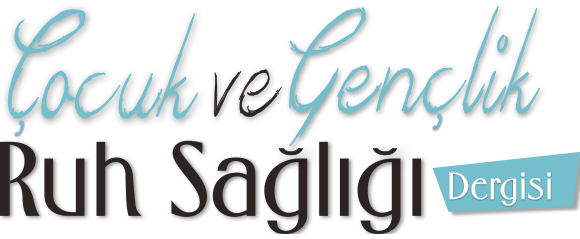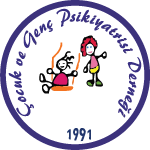ABSTRACT
Objectives:
Autism spectrum disorder (ASD) is a neuro-developmental syndrome that is defined by deficits in social reciprocity and communication, and by unusual restricted, repetitive behaviors. ASDs are one of the very common serious diseases. According to data from the American Psychiatric Association in June 2015, one per 68 children is diagnosed with ASD.
Materials and Methods:
The study is a descriptive study. The population of the research includes the grade 6 students from Adnan Menderes University School of Medicine (n=167). In the study, it was tried to involve the entire population. To determine the survey questions, the diagnostic criteria for DSM-5, Modified Checklist for Autism in Toddlers and Knowledge About Childhood Autism Among Health Workers Survey have been benefited from.
Results:
The study included 127 participants. Of these participants, 23 (18.1%) said they had not heard of ASD. There was no significant difference between men and women in terms of the level of knowledge (p=0.378). Twenty seven participants (21.1%) reported that they participated in the examination or follow-up of patients with ASDs during the internshipin the department of child psychiatry and there was a significant difference in the level of knowledge between the students who participated and did not participate (p<0.001). One of the five students who participated in the study stated that they never heard of ASD. This is because the students were asked about whether or not they heard about ASD in the first question of the survey and they were asked to finalize the survey if they did not. It can be suggested that the students not inetersted in the study might have preferred this option. Participation in the examination and follow-up of patients with ASD shows a positive effect in terms of memorability and awareness of knowledge.
Conclusion:
ASD’s being increasingly widespread has made this disease a major public health problem. The participation of medical students in the patient examinations and follow-up periods should be emphasized. Health workers should be given intermittent training seminars and refresher trainings.
Keywords:
Autism spectrum disorder, medical students, awareness
References
1 DSM The Manual Used By Clinicians and Researchers To Diagnose and Classify Mental Disorders. The American Psychiatric Association (APA), DSM-5 in 2013.
2 http://www.psychiatry.org/patients-families/autism/what-is-autism-spectrum-disorder(Erişim Tarihi: Haziran 2015).
3 Çocuk ve Ergen Psikiyatrisi Temel Kitabı. HYB Yayıncılık, Ankara 2008;242:256.
4 Nicholas JS, Charles JM, Carpenter LA, King LB, Jenner W, Spratt EG. Prevalence and Characteristics of Children With Autism-Spectrum Disorders. Ann Epidemiol. 2008;18:130-136.
5 Korkmaz B. Otizm: Klinik ve nörobiyolojik özellikleri, erken tanı, tedavi ve bazı güncel gelişmeler. Turk Pediatri Ars 2010;45:37-44
6 Bryson SE, Zwaigenbaum L, Roberts W. The early detection of autism in clinical practice. Paediatr Child Health. 2004;9:219-221.
7 Shah K. Research in brief: what do medical students know about autism? Autism. 2001;5:127-133.
8 Volkmar FR. Brief report: diagnostic issues in autism: results of the DSM-IV field trial. J Autism Dev Disord. 1996;26:155-157.
9 Bakare MO, Ebigbo PO, Agomoh AO, Menkiti NC. Knowledge about childhood autism among health workers (KCAHW) questionnaire: description, reliability and internal consistency. Clin Pract Epidemiol Ment Health. 2008;4:17.
10 Hartley-McAndrew M, Doody K, Mertz J. Knowledge of Autism Spectrum Disorders in Potential First-Contact Professionals. NAJ Med Sci. 2014;7:97-102.
11 Rahbar MH, Ibrahim K, Assassi P. Knowledge and Attitude of General Practitioners Regarding Autism in Karachi, Pakistan. J Autism Dev Disord. 2011;41:465-474.
12 Bakare MO, Tunde-Ayinmode MF, Adewuya AO, Bello-Mojeed MA, Sale S, James BO, Yunusa MA, Obindo JT, Igwe MN, Odinka PC, Okafor CJ, Oshodi YO, Okonoda KM, Munir KM, Orovwigho AO. Recognition of Autism Spectrum Disorder (ASD) symptoms and knowledge about some other aspects of ASD among final year medical students in Nigeria, Sub-Saharan Africa. BMC Res Notes. 2015;8:454.
13 Eseigbe EE, Nuhu FT, Sheikh TL, Eseigbe P, Sanni KA, Olisah VO. Knowledge of Childhood Autism and Challenges of Management among Medical Doctors in Kaduna State, Northwest Nigeria. Autism Res Treat. 2015;2015:892301.
14Imran N, Chaudry MR, Azeem MW, Bhatti MR, Choudhary ZI, Cheema MA. A survey of Autism knowledge and attitudes among the healthcare professionals in Lahore, Pakistan. BMC Pediatr. 2011;11:107.



